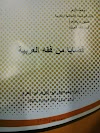The practice of Qiyam Ramadan, widely known today as Tarawih prayer, holds a special place in Islam, particularly during the holy month of Ramadan. Rooted in the teachings of the Prophet Muhammad (peace be upon him), this voluntary night prayer carries immense spiritual rewards. In this article, we’ll explore the significance of Qiyam Ramadan, its connection to Tarawih, and why it’s a cherished act of worship for Muslims worldwide.
What is Qiyam Ramadan?
Qiyam Ramadan refers to standing in prayer during the nights of Ramadan. The term "Qiyam" literally means "standing," in its original sense, it implies spending the entire night in worship without sleep. However, as explained by Islamic scholars and derived from the sayings of the Prophet Muhammad (peace be upon him), Qiyam Ramadan doesn’t require staying awake all night. Even dedicating a portion of the night—whether an hour or two—to prayer earns the believer the blessings associated with this practice.
The Prophet Muhammad (peace be upon him) said, as narrated by Abu Hurairah in a hadith agreed upon by Bukhari and Muslim:
"Whoever performs Qiyam Ramadan out of faith and seeking Allah’s reward, all their past sins will be forgiven."
This powerful statement highlights the spiritual cleansing and divine mercy tied to this act of devotion.
The Connection Between Qiyam Ramadan and Tarawih
While the term "Tarawih" is commonly used today, it wasn’t prevalent during the early days of Islam. At that time, the practice was simply called Qiyam Ramadan. Imam Nawawi, a renowned Islamic scholar, explained that "reviving Ramadan" refers to performing the Tarawih prayer. The word "Tarawih" itself is the plural of "Tarwihah," a feminine form of "Tarwih," which likely stems from the tradition of resting between sets of prayer cycles (rak’ahs).
Historically, Muslims would pray in groups of four rak’ahs and then pause to rest, supplicate, recite dhikr (remembrance of Allah), or seek forgiveness. These intervals of rest, known as "Tarwihah," gave rise to the name "Tarawih" for the Qiyam prayers performed during Ramadan. Over time, this term became widely adopted to describe the special night prayers of the holy month.
The Encouragement of the Prophet (Peace Be Upon Him)
The Prophet Muhammad (peace be upon him) encouraged his followers to perform Qiyam Ramadan without making it obligatory. As narrated by Abu Hurairah in a hadith recorded by Imam Muslim:
"He (the Prophet) urged them to perform Qiyam Ramadan without strictly commanding it. He said, ‘Whoever performs Qiyam Ramadan with faith and hope for reward, their past sins will be forgiven.’"
This gentle encouragement reflects the flexibility of the practice—whether one prays a few rak’ahs or many, for a short or longer duration, the reward remains accessible. The Prophet’s use of "Qiyam Ramadan" to describe this prayer, even if it doesn’t span the entire night, underscores Allah’s generosity and the value He places on sincere effort.
The Spiritual Rewards of Tarawih
The rewards of Tarawih extend beyond forgiveness of sins. The Prophet (peace be upon him) emphasized its significance by linking it to communal worship. For instance, he indicated that a person who prays Isha in congregation and follows it with Qiyam Ramadan—before resting and then praying Fajr in congregation—receives the blessing as if they had spent the entire night in worship. This divine favor showcases Allah’s mercy and His desire to reward even small acts of devotion during Ramadan.
Why Muslims Perform Tarawih Today
Today, Tarawih prayers are a hallmark of Ramadan, performed in mosques and homes worldwide. The number of rak’ahs varies—some pray 8, others 20, and some even more—yet the essence remains the same: standing in prayer to draw closer to Allah. The practice often includes reciting the Quran, supplications, and moments of reflection, making it a holistic act of worship.
For those seeking to maximize their Ramadan experience, Tarawih offers a unique opportunity to connect with Allah, seek forgiveness, and earn spiritual rewards. Whether you’re a beginner or a seasoned worshiper, dedicating time to this prayer can transform your nights in Ramadan.
Conclusion
Qiyam Ramadan, or Tarawih, is more than just a nightly ritual—a pathway to forgiveness, mercy, and spiritual growth. Rooted in the Sunnah of the Prophet Muhammad (peace be upon him), this practice embodies the essence of Ramadan: faith, devotion, and hope in Allah’s boundless rewards. By performing Tarawih with sincerity, Muslims can unlock the blessings promised by their Creator, making it a cherished tradition that continues to thrive centuries later.









